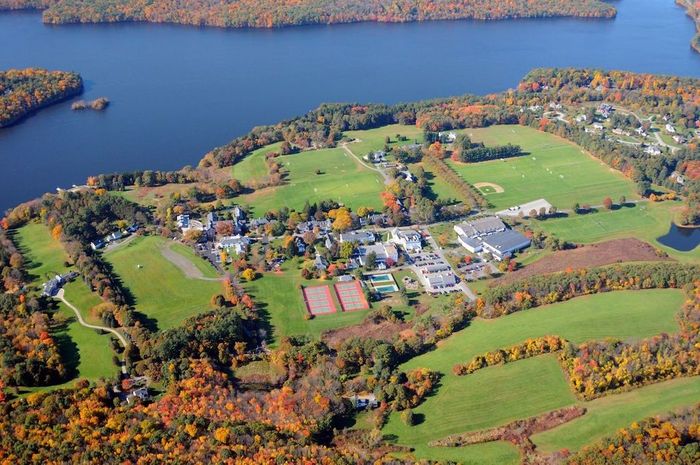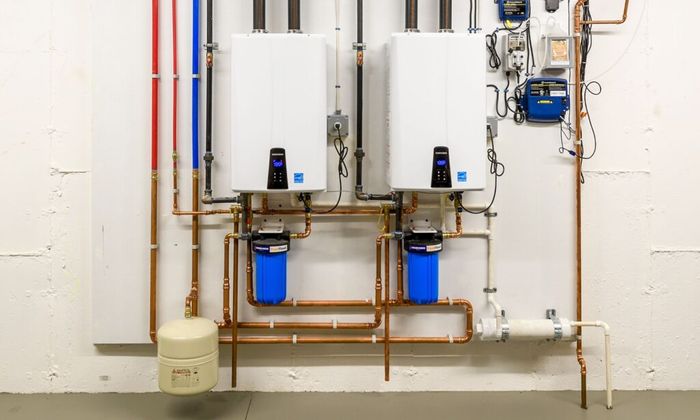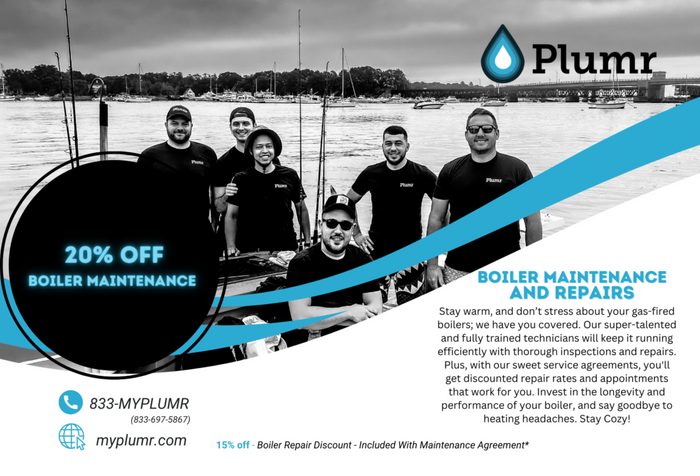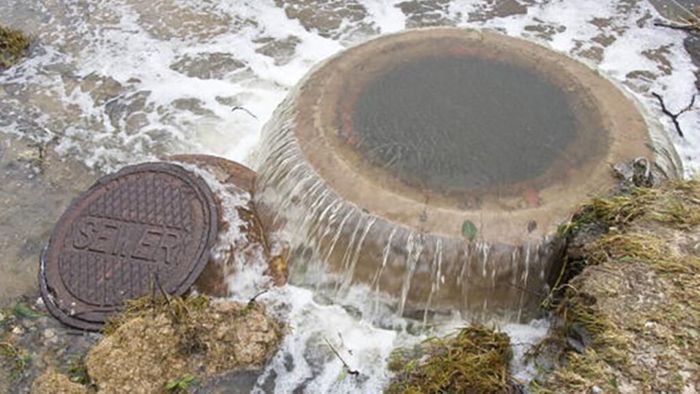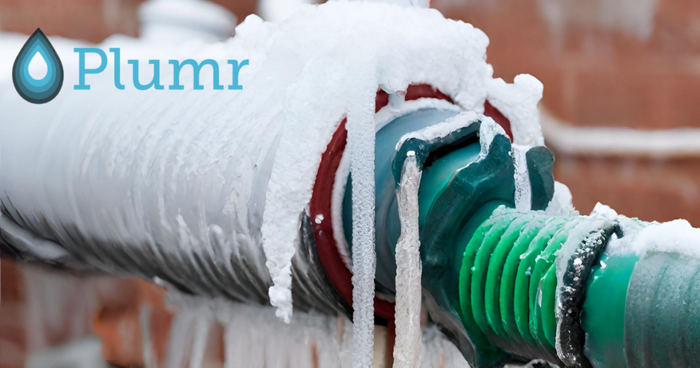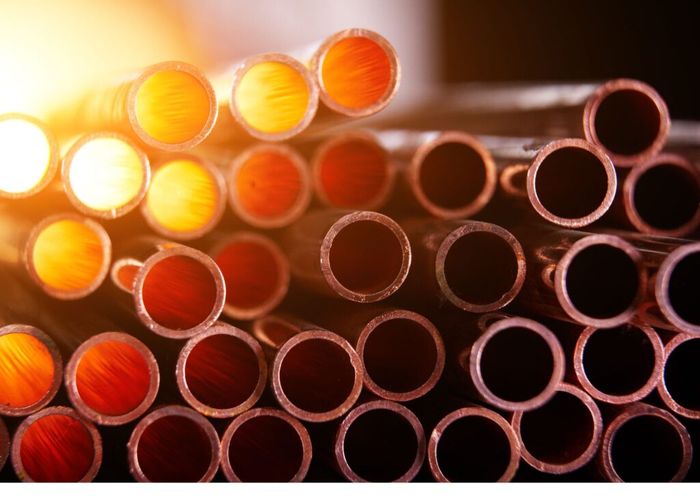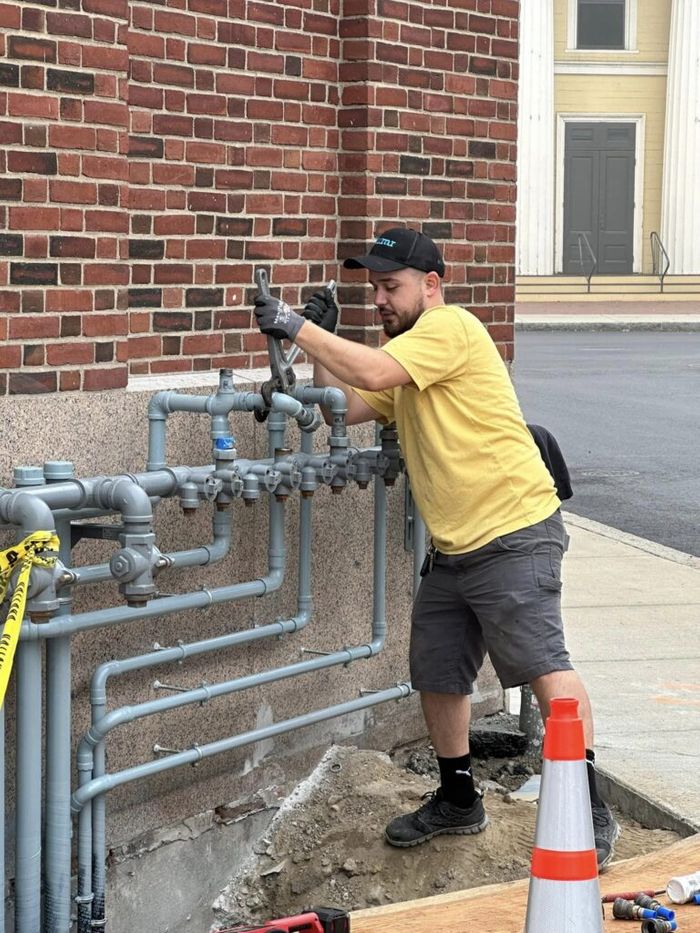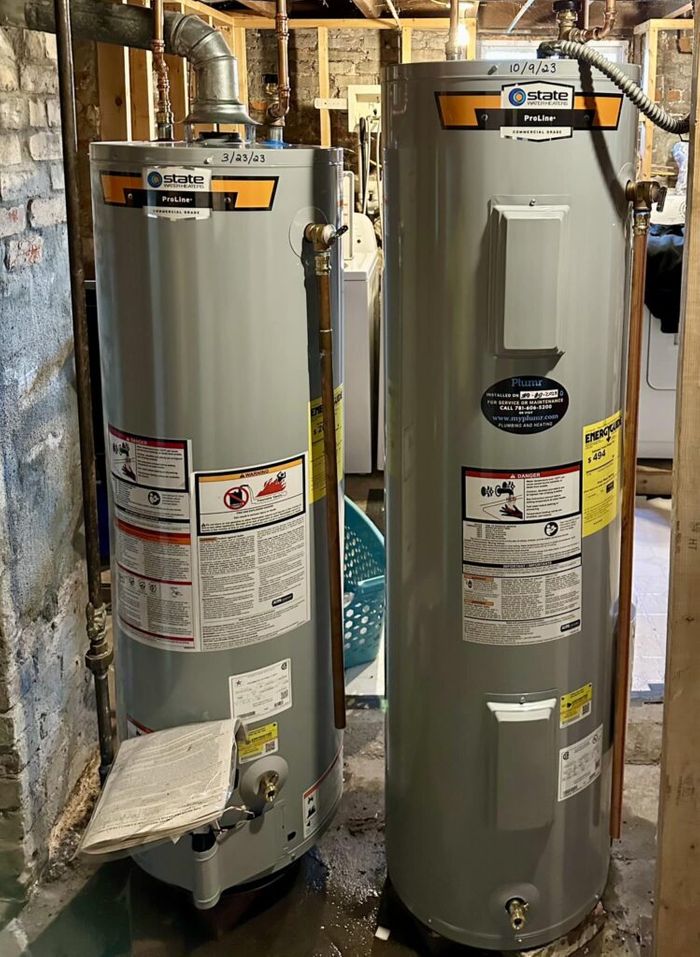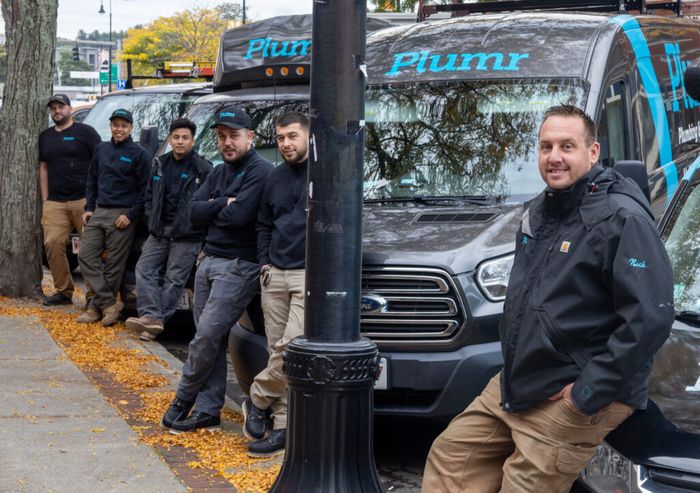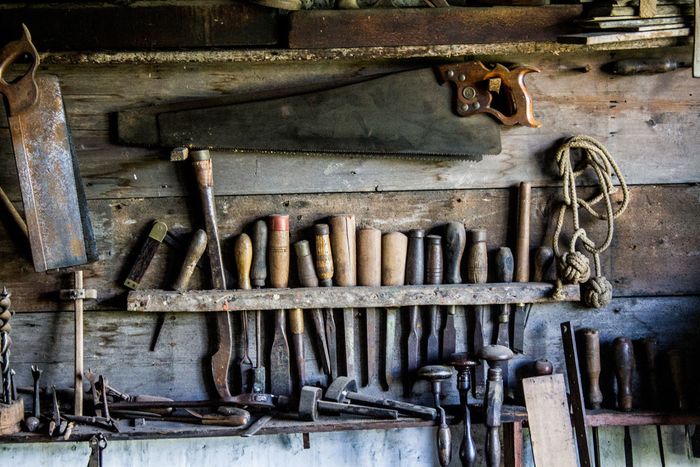Blog
Recent Updates
Why Is My Toilet Always Running?
Have you ever experienced the frustration of a constantly running toilet? The sound of water running non-stop can be not only annoying but also a sign of a potential plumbing issue that needs to be addressed. As the leading plumbing company in North Andover, MA, Plumr is here to shed light on why your toilet may be running continuously and how to resolve this common problem.
moreThe Ultimate Plumbing Solution in North Andover, MA - Plumr Has You Covered!
If you are in need of plumbing services in North Andover, MA, then look no further! Plumr is proud to be the Top Rated Local plumber in North Andover!
moreMass Save Rebates for Commercial Plumbing
Mass Save Rebates for Commercial Plumbing
Boost Your Business and Your Bottom Line: Mass Save Rebates for Commercial Plumbing Upgrades!
Are you a business owner in Massachusetts looking to cut down on operating costs while also enhancing the efficiency and comfort of your commercial space? Look no further than the Mass Save Commercial Rebate Program! 💼💡
The Mass Save Rebate Program is a state-led initiative that offers cash incentives, rebates, and financing options to commercial customers who are committed to reducing their energy consumption and making their businesses more environmentally friendly. By participating in Mass Save, business owners can not only save money on utility bills but also create a more comfortable and sustainable space for their employees...
moreTankless Water Heating System
Tankless Water Heating System
When it comes to enjoying a hot bath, washing dishes, or doing laundry, Plumr’s tankless water heating system is the ultimate solution. Our on-demand tankless water heater ensures that you have instantaneous hot water whenever you need it, all while delivering unparalleled performance and energy-saving efficiency.
Unlike traditional water heaters with storage tanks, our tankless system eliminates the need for storage and provides a constant flow of hot water. As you turn on your water faucet, the water passes through our advanced heating element, which quickly heats up the water. Our tankless water heater can be powered by either electricity or a gas flame, offering flexibility to suit your needs.
While our tankless water heaters are...
moreInstalling Mini Splits
Installing Mini Splits
Mini splits, also known as ductless mini-split air conditioners, have grown in popularity due to their effectiveness and energy efficiency. These air conditioning units are ideal for homes that don’t have existing ductwork and can be installed quickly and without the need for extensive renovation. However, it’s important to hire a trained and experienced plumber to install your mini splits, and here’s why:
Proper Sizing and Placement
Choosing the right size and location for your mini split is crucial for optimal performance. An experienced plumber can properly calculate the size and capacity needed for your space and identify the best location for installation. This will ensure that your mini split functions efficiently and delivers the desired...
moreElectronic Ignition vs. Standing Pilot System
Electronic Ignition vs. Standing Pilot System
When it comes to choosing a water heater, one important decision you’ll need to make is whether to opt for electronic Ignition vs. Standing Pilot System. Both options have their advantages and considerations, and understanding the differences between the two can help you make an informed decision for your home. Let’s take a closer look at electronic ignition and standing pilot systems and the factors to consider when selecting the right system for your water heater.
What is an Electronic Ignition System?
An electronic ignition system is a modern and energy-efficient technology used in many newer water heaters. With electronic ignition, a small electronic device, such as a spark or hot surface igniter, is used to ignite the...
moreLeaky Boiler Valve
A leaky boiler valve can be a frustrating and potentially costly problem if left unaddressed. Ignoring a leak can lead to water damage, increased energy consumption, and even potential system failure. If you notice a leaky boiler valve in your home or facility, taking immediate action is crucial. In this blog, we’ll discuss what you can do about a leaky boiler valve, including steps to take and potential solutions to consider.
Identify the Source of the Leak
Before taking any action, it’s important to identify the source of the leak. Boiler valves can leak from various points, such as the valve stem, body, or connections. Inspect the valve carefully and determine the exact location of the leak. This will help you understand the severity of the issue and decide on the best...
moreBoiler Maintenance at 20% Off!
Boiler Maintenance
As the winter chill sets in and we prepare to stay warm in the comfort of our homes, it’s important to ensure that our heating systems are in top-notch condition. After months of inactivity, firing up the boilers for the first time can sometimes lead to unexpected breakdowns or performance issues. But fret not! The solution lies in proactive boiler maintenance.
At Plumr, we understand the value of peace of mind when it comes to your home’s heating system. That’s why we’re thrilled to offer an exclusive deal to all NorthShore residents: 20% off on boiler maintenance when you sign up for an agreement!
The Importance of Boiler Maintenance
Regular boiler maintenance plays a critical role in maintaining the efficiency, reliability, and longevity of...
moreSigns of a Back-Up Sewer
Signs of a Backed-Up Sewer
When it comes to identifying signs of a backed-up sewer in a home, there are several key indicators to look out for
Slow Drains:
One of the most common signs is slow drains throughout the home. If you notice that sinks, showers, or tubs are draining slowly or are clogged, it could indicate a blockage in the sewer line.
Water Backing Up:
Another clear sign is water backing up into sinks, toilets, or tubs. If you observe water coming up from these fixtures when you run water elsewhere in the house, it is likely that there is a blockage in the sewer line.
Unpleasant Odors:
A foul odor emanating from drains, toilets, or the general area can be an indication of a sewer backup. The odor is due to the trapped waste unable to...
moreWinterizing Plumbing Tips
Winter is Here! It’s time to start protecting your plumbing from the freezing temperatures. North Shore residents in the Boston area are no strangers to the harsh winter weather that can wreak havoc on pipes and plumbing systems. To prevent costly and inconvenient plumbing issues, it is essential to winterize your plumbing. In this blog post, we will discuss some valuable tips and techniques specifically tailored for the North Shore area of Boston.
Insulating Exposed Pipes
One of the most effective ways to winterize your plumbing is by insulating any exposed pipes. In the North Shore area, where temperatures can drop drastically, exposed pipes are at a higher risk of freezing and bursting. Start by identifying all the exposed pipes in your home, such as those in basements,...
moreCommon Plumbing Issues in Cold Weather
Common plumbing issues in cold weather
As winter descends upon us, the colder temperatures can wreak havoc on our plumbing systems. from burst pipes to frozen fixtures, it is important to be prepared for the common plumbing issues that accompany the cold weather. While some homeowners may be tempted to take on these problems themselves, it is always advisable to hire a licensed plumber. In this blog post, we will discuss the most common plumbing issues in cold weather and explain why hiring a licensed plumber is the best course of action.
Common Plumbing Issues in Cold Weather Burst Pipes
One of the most common and costly problems common plumbing issues in cold weather is burst pipes. When the water inside pipes freezes, it expands, putting excessive pressure on the...
moreHow to Prevent Frozen Pipes
Winter is a beautiful season in Boston North Shore, Massachusetts, but it can also bring its fair share of challenges, especially when it comes to plumbing. One of the most common and costly issues homeowners face during the winter months is frozen pipes. However, with a few preventative measures, you can effectively protect your pipes from freezing and avoid costly repairs. In this blog post, we will discuss several tips on how to prevent frozen pipes in winter in the Boston North Shore area.
- Insulate Your Pipes
Insulating your pipes is one of the most effective ways to prevent them from freezing. You can use pipe insulation sleeves or wrap the pipes with heat tape. This additional layer of protection will help maintain a stable temperature inside the pipes and prevent...
Plumr’s North Shore MA, Holiday Community Giveaway
Plumr’s North Shore MA, Community Holiday Giveaway , Offers locals the Chance to Win a Mini Split or Tankless Water Heater
Wakefield, MA, 12/13/2023 – Plumr, a trusted community plumbing company serving the North Shore MA, area, is teaming up with Winsupply Wakefield, MA, a leading supplier of plumbing, heating, and water system products, to bring the North Shore MA, Holiday Community Giveaway to local residents. This exciting initiative aims to give back to the community and provide three lucky winners with state-of-the-art heating, cooling, and water heating systems for their homes.
The North Shore, MA, Holiday Community Giveaway presents a unique opportunity for residents to win a cutting-edge LG single-head mini-split heating and cooling system and two Navien...
moreCopper Piping
Why is Underground Copper Piping Such a Big Problem for Homeowners?
Underground copper piping has been a popular choice for homeowners due to its durability, long lifespan, and resistance to corrosion. However, in recent years, homeowners have faced mounting concerns and problems related to their underground piping systems. In this blog post, we will discuss the reasons why this has become a significant issue for homeowners and what they can do to address these problems.
Copper Piping Corrosion and Pinhole Leaks
One of the major challenges with underground piping is the occurrence of corrosion and pinhole leaks. Over time, the copper pipes can corrode due to the interaction with various elements present in the soil, such as minerals, chemicals, and moisture. This...
moreVenting in Toilet Plumbing
Venting plays a vital role in the effective functioning of toilet plumbing, yet it is often overlooked. Let’s explore the significance of venting in toilet plumbing and why it is essential for a well-designed system.
Venting in Toilet Plumbing
Venting ensures air can flow in and out of the plumbing system, particularly in relation to the toilet. A vent pipe connects to the drain line, balancing the pressure and allowing water to flow smoothly without any interruptions.
Benefits of Proper Venting in Toilet Plumbing
Preventing Trap Siphoning
A plumbing trap, such as the U-shaped pipe under your toilet, stops unpleasant sewer gases from entering your home. Without proper venting, negative pressure from other fixtures can cause trap siphoning, pulling water...
moreGuide to Evaluating Plumbing Systems
Guide to Evaluating Plumbing Systems:
When buying a home, plumbing may not be the first thing on your mind, but it’s crucial to ensure you’re making a sound investment and that your new home is free of plumbing issues. An initial plumbing check can save you from future repair costs and give you peace of mind.
Here are a few tips on how to do an initial plumbing check when looking at a home you want to purchase:
Inspect the Water Supply
When Evaluating the Plumbing System The first thing to check is the water supply system. Make sure you turn on the faucets, showers, and flush the toilets to ensure that water flows smoothly throughout the home. It could also be helpful to check the water pressure to ensure that it is consistent and strong enough to meet your...
moreCommon Plumbing Issues
Common Plumbing Issues come up. Plumr understands the common plumbing issues that homeowners face. . By addressing these problems promptly, you can prevent further damage and ensure your home’s plumbing system functions smoothly.
Leaky Faucets:
Leaky faucets are not only a nuisance but can also lead to water waste and increased utility bills. At Plumr, we have encountered numerous cases of leaky faucets in North Shore homes. We will explain the possible causes, such as worn-out washers or faulty seals, and guide you step-by-step on how to fix them. Additionally, we will emphasize the importance of timely repairs to save water and money.
Clogged Drains:
Clogged drains are a common issue that can disrupt your daily routine. Whether it’s a kitchen sink, bathroom...
moreHow do Tankless Water Heaters work?
“A tankless water heater, also known as an on-demand water heater, operates by heating water directly as it passes through the unit, eliminating the need for a storage tank.”
Heating Process
When a hot water tap is turned on, cold water enters the unit through an inlet pipe. The cold water is rapidly heated by either a gas burner or an electric element within the tankless water heater. The heated water then flows out of the unit and is delivered to the desired faucet or fixture.
Energy Efficiency and Continuous Supply
“How Does a Tankless Water Heater Work? Unlike traditional water heaters that store a large volume of hot water, tankless water heaters provide hot water on demand, resulting in energy savings and a continuous supply of hot water. Since the water...
moreChoosing The Right Water Heater
Choosing the right water heater for your home is a crucial decision that directly impacts your daily comfort and energy efficiency. Plumr, in North Shore of Massachusetts, understands the importance of meeting your household’s needs.
Determine Your Hot Water Needs
Before selecting a water heater, assess your household’s hot water demands. Consider factors such as the number of occupants, daily hot water usage, and peak demand times.
Types of Water Heaters
There are various types of water heaters available, each with its advantages and considerations.
Conventional Storage Tank Water Heaters
These water heaters store and constantly heat a predetermined amount of water in a tank.
Tankless Water Heaters
Tankless water heaters heat water...
moreWhy Plumr NorthShore MA is Exceptional: More Than Just a Plumbing Service
Plumr NorthShore MA
In NorthShore MA, Plumr has stood out not just for its technical expertise, but also for its commitment to the community and customer satisfaction: Plumr. The company boasts an impressive 4.9 rating on Google Reviews from 160 reviews, cementing its position as a top-tier service provider. In this extended blog, we delve deeper into what makes Plumr so outstanding.
Stellar Expertise and Experience
First and foremost, Plumr has a team of seasoned professionals that bring an incredible depth of experience to every job. From routine maintenance checks and installations to more complex repair work, their technical prowess ensures that any plumbing problem—no matter how complicated—is resolved quickly and efficiently.
Speed and Reliability: Always...
moreThe Essence of Preventive Plumbing Maintenance
When managing your home, being prepared can make all the difference. As they say, prevention is better than cure. So is the case with your home’s plumbing system. Often, homeowners only act when a crisis has already occurred. To avoid this, creating a comprehensive maintenance checklist is paramount. Let’s delve into the specific aspects of your home that should make it to your plumbing maintenance list.
Areas of Focus: Where to Direct Your AttentionYour Home’s Wet Spots: The Bathroom & Kitchen
Given that they are teeming with plumbing fixtures, both the bathroom and kitchen are prime suspects for plumbing issues.
In the Bathroom:
- Leaking Faucets: Please regularly scrutinize your bathroom fixtures, such as sink, tub, and shower faucets,...
Plumr’s North Shore MA, Holiday Community Giveaway,
Wakefield, MA, 12/13/2023 – Plumr, a trusted community plumbing company serving the North Shore MA, area, is teaming up with Winsupply Wakefield, MA, a leading supplier of plumbing, heating, and water system products, to bring the North Shore MA, Holiday Community Giveaway to local residents. This exciting initiative aims to give back to the community and provide three lucky winners with state-of-the-art heating, cooling, and water heating systems for their homes.
The North Shore, MA, Holiday Community Giveaway presents a unique opportunity for residents to win a cutting-edge LG single-head mini-split heating and cooling system and two Navien tankless water heaters. These prizes have been carefully selected to enhance the comfort, convenience, and energy efficiency of the...
moreWelcome
Welcome to our site! We are in the process of building our blog page and will have many interesting articles to share in the coming months. Please stay tuned to this page for information to come. And if you have any questions about our business or want to reach out to us, we would love for you to stop by our contact page.
Thank you!
more

